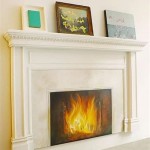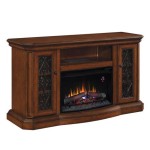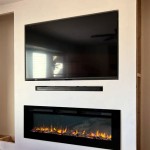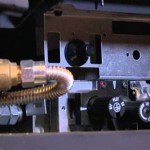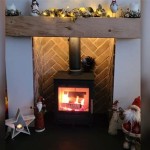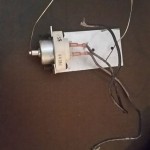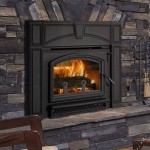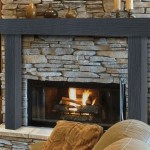Understanding Fireplace Pan Burners: A Comprehensive Guide
Fireplace pan burners are an integral component of modern gas fireplace systems, providing a controlled and efficient means of generating flames. This article aims to provide a comprehensive understanding of fireplace pan burners, including their functionality, types, installation, maintenance, and troubleshooting. This information is crucial for homeowners, contractors, and anyone involved in the selection, installation, and maintenance of gas fireplaces.
A fireplace pan burner is essentially a metal pan, typically made of cast iron or stainless steel, perforated with numerous small holes or slots. These perforations allow the controlled release of natural gas or propane, which is then ignited to create the desired flame effect. The pan burner is designed to distribute the gas evenly across its surface, resulting in a uniform and visually appealing flame pattern. The design and materials used in the construction of the pan burner significantly impact its performance, efficiency, and longevity.
Unlike traditional log lighters or simple pipe burners, pan burners offer a more sophisticated and controlled burning experience. They are typically used in conjunction with decorative elements such as ceramic logs, glass media, or stones to enhance the aesthetic appeal of the fireplace. The pan design allows for these decorative elements to be strategically placed around the flames, creating a realistic and visually captivating fire.
Key Point 1: Types of Fireplace Pan Burners
Fireplace pan burners are available in a variety of designs, sizes, and materials to suit different fireplace configurations and aesthetic preferences. Understanding the different types of pan burners is essential for selecting the appropriate burner for a specific fireplace installation.
Based on Fuel Type:
Natural Gas Pan Burners: These burners are designed specifically for use with natural gas. They feature orifices sized to accommodate the specific pressure and BTU content of natural gas. Using a propane pan burner with natural gas, or vice-versa, is dangerous and will result in inefficient combustion and potential safety hazards.
Propane Pan Burners: These burners are designed for use with propane gas. They have smaller orifices than natural gas burners, as propane requires a higher pressure for combustion. Propane pan burners often require a regulator to control the gas pressure entering the burner.
Based on Design and Shape:
Linear Pan Burners: These burners are elongated and rectangular, creating a long, continuous flame. They are often used in modern fireplaces with a linear design aesthetic.
Round Pan Burners: As the name suggests, round pan burners are circular. They are often used in more traditional fireplace designs or in fire pits. They provide a more centralized flame pattern.
H-Burners: H-Burners resemble the letter "H" and provide two parallel lines of flames. They offer a wider flame distribution compared to linear burners of the same length.
Custom-Shaped Pan Burners: Some manufacturers offer custom-shaped pan burners to fit unique fireplace designs. These burners are often made to order and can be tailored to specific dimensions and flame patterns.
Based on Material:
Cast Iron Pan Burners: Cast iron is a durable and heat-resistant material commonly used for pan burners. Cast iron burners are known for their longevity and ability to retain heat, contributing to a more consistent flame.
Stainless Steel Pan Burners: Stainless steel pan burners are resistant to corrosion and rust, making them ideal for outdoor fireplaces or fireplaces exposed to moisture. They offer a sleek and modern aesthetic.
The selection of a specific pan burner type is often dictated by the fuel type available, the dimensions of the firebox, and the desired aesthetic of the fireplace. Proper matching of fuel type and burner design is crucial for safe and efficient operation.
Key Point 2: Installation and Safety Considerations
Proper installation of a fireplace pan burner is paramount for ensuring safe and efficient operation. Incorrect installation can lead to gas leaks, incomplete combustion, and potentially dangerous situations. Installation should always be performed by a qualified and licensed gas technician, adhering to local building codes and manufacturer's instructions.
Pre-Installation Checks:
Before beginning the installation process, it is crucial to verify that the gas supply line is compatible with the type of burner being installed (natural gas or propane). The gas supply line should be inspected for leaks and proper shut-off valves should be in place. It is also important to ensure that the firebox is properly ventilated and meets the required clearances from combustible materials, as specified by the manufacturer.
Connecting the Gas Line:
The gas line connection to the pan burner should be made using approved gas fittings and sealant. All connections should be thoroughly tested for leaks using a non-corrosive leak detection solution. Never use an open flame to check for gas leaks. The gas supply pressure should be within the range specified by the burner manufacturer.
Positioning the Burner:
The pan burner should be positioned within the firebox according to the manufacturer's instructions. Ensure that the burner is level and that all connections are secure. The burner should be positioned in a manner that allows for proper airflow and combustion. The placement of decorative elements, such as logs or glass media, should not obstruct the burner ports or impede airflow.
Safety Devices:
Many modern fireplace systems incorporate safety devices such as thermocouples or pilot lights. These devices are designed to shut off the gas supply if the flame is extinguished, preventing the accumulation of unburned gas. It is crucial to ensure that these safety devices are functioning correctly and are properly connected to the burner system.
Ventilation:
Proper ventilation is essential for safe fireplace operation. Fireplaces require adequate ventilation to allow for the exhaust of combustion products and to provide sufficient oxygen for combustion. Clogged or obstructed vents can lead to carbon monoxide buildup and other safety hazards. The ventilation system should be inspected regularly to ensure it is functioning properly.
Post-Installation Testing:
After installation, the burner should be tested to ensure proper ignition, flame height, and combustion. The burner should be allowed to run for a period of time to check for any unusual odors or sounds. The carbon monoxide levels in the room should be monitored to ensure they are within acceptable limits. Any issues detected during testing should be addressed immediately by a qualified technician.
Adherence to safety guidelines and proper installation procedures are crucial for preventing accidents and ensuring the long-term safe operation of a fireplace pan burner system.
Key Point 3: Maintenance and Troubleshooting
Regular maintenance is essential for maintaining the performance and extending the lifespan of a fireplace pan burner. Neglecting maintenance can lead to reduced efficiency, uneven flame patterns, and potential safety hazards. Troubleshooting common issues can help identify and resolve problems quickly and efficiently.
Regular Cleaning:
The pan burner should be cleaned regularly to remove dust, debris, and carbon deposits that can accumulate over time. A soft brush or vacuum cleaner can be used to remove loose debris. In some cases, a mild detergent solution can be used to clean the burner, but it is important to rinse thoroughly and allow the burner to dry completely before use. Avoid using abrasive cleaners or solvents, as they can damage the burner surface.
Orifice Inspection and Cleaning:
The orifices, or small holes, in the pan burner can become clogged with debris or mineral deposits, leading to uneven flame patterns. The orifices should be inspected regularly and cleaned if necessary. A thin wire or needle can be used to gently clear any obstructions. Be careful not to enlarge or damage the orifices, as this can affect the gas flow and combustion.
Pilot Light Maintenance:
If the fireplace has a pilot light, it should be checked regularly to ensure it is burning brightly and steadily. A weak or flickering pilot light can indicate a problem with the gas supply or the thermocouple. Clean the pilot light assembly with a small brush to remove any debris. If the pilot light continues to malfunction, it may need to be replaced.
Gas Leak Detection:
Regularly check for gas leaks around the burner and gas line connections. Use a non-corrosive leak detection solution to check for leaks. If a gas leak is detected, immediately shut off the gas supply and contact a qualified gas technician.
Troubleshooting Common Issues:
Uneven Flame Pattern: An uneven flame pattern can be caused by clogged orifices, uneven gas distribution, or improper burner positioning. Inspect the orifices for obstructions and clean them if necessary. Ensure that the burner is level and properly positioned within the firebox.
Weak or Flickering Flame: A weak or flickering flame can be caused by low gas pressure, a faulty gas regulator, or a dirty pilot light. Check the gas supply pressure and ensure that the gas regulator is functioning properly. Clean the pilot light assembly if necessary.
Difficulty Igniting: Difficulty igniting the burner can be caused by a faulty igniter, a dirty pilot light, or low gas pressure. Check the igniter and ensure it is producing a spark. Clean the pilot light assembly and check the gas supply pressure.
Soot Buildup: Excessive soot buildup can indicate incomplete combustion, which can be caused by insufficient airflow, improper gas pressure, or a dirty burner. Ensure that the firebox is properly ventilated and that the gas supply pressure is within the specified range. Clean the burner regularly to remove carbon deposits.
Strange Odors: Unusual odors can indicate a gas leak, incomplete combustion, or burning debris. Immediately shut off the gas supply and contact a qualified gas technician if a gas leak is suspected. Clean the burner and firebox to remove any debris.
By performing regular maintenance and addressing common issues promptly, homeowners can ensure the safe, efficient, and long-lasting performance of their fireplace pan burner system. However, any complex repairs or troubleshooting should always be handled by a qualified gas technician.

Fluted Rectangle Stainless Steel Pan Burners Diamond Fire Glass

Rasmussen Cs21 Sr Fireplace Pan Burner For Use With Ceramic Fire Balls Spheres And Shapes

Rasmussen Cs Custom Pan Vented Fireplace Burner Kit With Round Legs

Stainless Steel Gas Fireplace Burner Pan Magic Touch Mechanical

Trapezoid Gas Fireplace Burner Pan Magic Touch Mechanical

Pan Burners Diamond Fire Glass

Pb Burner Systems Real Fyre

Stainless Steel 22 Oval Fireplace Pan Burner Extreme Backyard Designs

Real Fyre Pan Gas Fireplace Burner The Energy House

Rasmussen Pan Burner For Ceramic Fire Ball Sets
Related Posts

